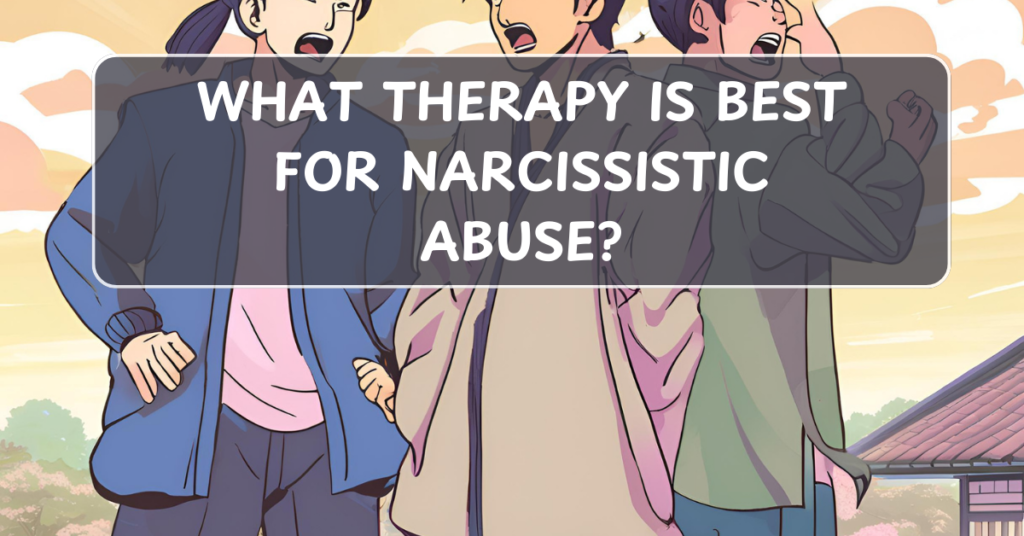
Narcissistic abuse can leave deep emotional scars, including feelings of worthlessness, confusion, and self-doubt. Healing from this form of abuse requires specialized approaches that address the unique challenges survivors face. The right therapy can help rebuild self-esteem, restore boundaries, and process the trauma caused by the manipulative behaviors of a narcissist.
Key Therapy Options for Survivors of Narcissistic Abuse
1. Trauma-Focused Therapy
Trauma-focused therapies are particularly effective in addressing the deep emotional wounds caused by narcissistic abuse. These therapies aim to help you process and heal from the trauma.
- Eye Movement Desensitization and Reprocessing (EMDR): Helps reprocess traumatic memories to reduce their emotional impact.
- Somatic Experiencing: Focuses on releasing trauma stored in the body and calming the nervous system.
2. Cognitive Behavioral Therapy (CBT)
CBT is a highly effective approach for addressing the distorted beliefs and thought patterns that often result from narcissistic abuse.
- Helps identify and challenge negative self-perceptions instilled by the abuser.
- Teaches coping strategies to manage anxiety, depression, and other symptoms of trauma.
- Encourages the development of healthier thought patterns and emotional resilience.
3. Dialectical Behavior Therapy (DBT)
DBT is particularly helpful if the abuse has left you feeling emotionally dysregulated or struggling to maintain relationships.
- Emotional Regulation: Learn techniques to manage overwhelming emotions.
- Interpersonal Effectiveness: Rebuild skills to set boundaries and assert your needs.
- Mindfulness: Stay present and reduce feelings of anxiety and self-doubt.
4. Psychodynamic Therapy
Psychodynamic therapy focuses on uncovering unconscious patterns and the root causes of emotional pain.
- Explores past experiences, including childhood wounds, that may have made you susceptible to narcissistic abuse.
- Helps you understand the dynamics of the abusive relationship and your role in it.
- Encourages self-reflection and growth for long-term healing.
5. Group Therapy or Support Groups
Healing in a group setting can be incredibly validating for survivors of narcissistic abuse.
- Connect with others who have had similar experiences.
- Share stories, insights, and coping strategies in a safe environment.
- Feel less isolated and gain a sense of community and support.
6. Internal Family Systems (IFS) Therapy
IFS therapy addresses the internal conflict survivors may experience after narcissistic abuse.
- Identifies and heals wounded “parts” of the self affected by the abuse.
- Strengthens the “Self” to take control and restore inner harmony.
Key Features of Effective Therapy for Narcissistic Abuse
Regardless of the type of therapy, the best treatment for narcissistic abuse should include:
- Validation of Your Experience: Your therapist should acknowledge and validate the abuse and its effects.
- Emphasis on Boundaries: Therapy should help you rebuild and maintain healthy boundaries.
- Focus on Empowerment: Treatment should foster self-confidence and autonomy.
- Trauma-Informed Care: A therapist trained in trauma can help navigate the complexities of abuse recovery.
Tips for Choosing the Right Therapist
- Specialization: Look for a therapist experienced in narcissistic abuse, trauma, or toxic relationships.
- Comfort and Trust: You should feel safe and supported in your sessions.
- Credentials: Check for certifications in trauma-focused modalities like EMDR, CBT, or DBT.
Healing Is Possible
Recovering from narcissistic abuse is a journey, but the right therapy can provide the tools and support you need to rebuild your life. With time and effort, you can rediscover your self-worth, set healthy boundaries, and live free from the shadow of abuse.


